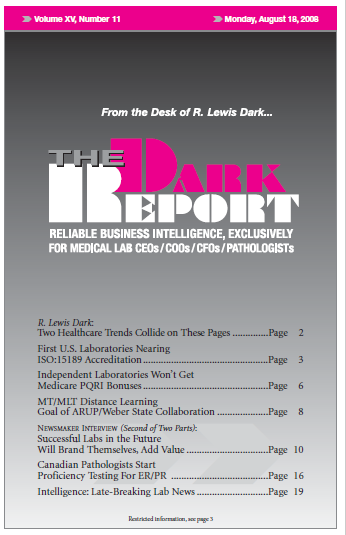CEO SUMMARY: Medicare does not intend to make bonus payments this year to independent labs currently reporting quality information for breast and colon cancer cases. The federal claims payment system is unable to pay independent labs for participating in the federal physician quality reporting initiative (PQRI). But physician pathology groups participating in PQRI will receive …
Independent Labs Won’t Get Medicare PQRI Bonuses Read More »
To access this post, you must purchase The Dark Report.


